The African continent is blessed with valuable and diverse coastal and marine resources, but much of its natural capital is either threatened or declining. Globally, oceans are experiencing enormous challenges related to warming temperatures, a drastic increase in marine pollution and plastic, widespread illicit activities and the overexploitation of marine resources.
Tanzania is the only country in Africa where blast fishing (fishing with explosives) still occurs on a large scale. Besides killing and injuring fish, the blasts cause irreversible damage to coral reefs, destroying the habitat of many reef species and threatening the country’s reputation as an important marine tourism destination.
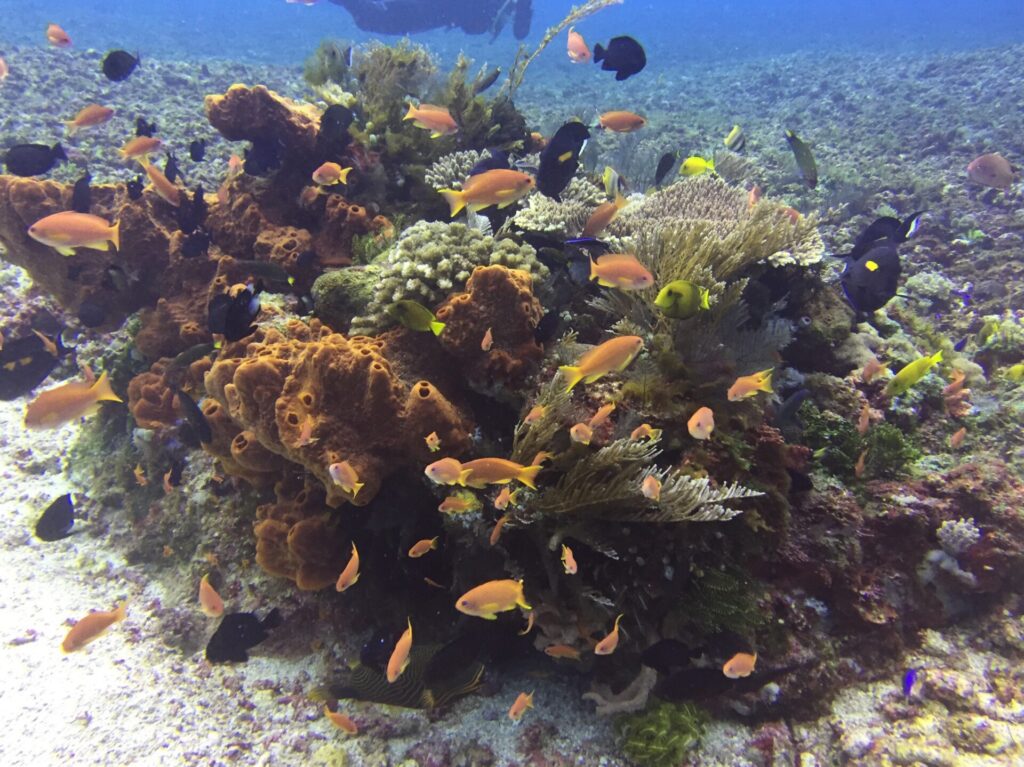
Often referred to as the rainforests of the sea, coral reefs are among the most biologically diverse and productive of the world’s habitats. They are essential to supporting life under water, but also play a direct role in sustaining life above it. They are of great economic, environmental and social importance to people, including the world’s poorest coastal communities.
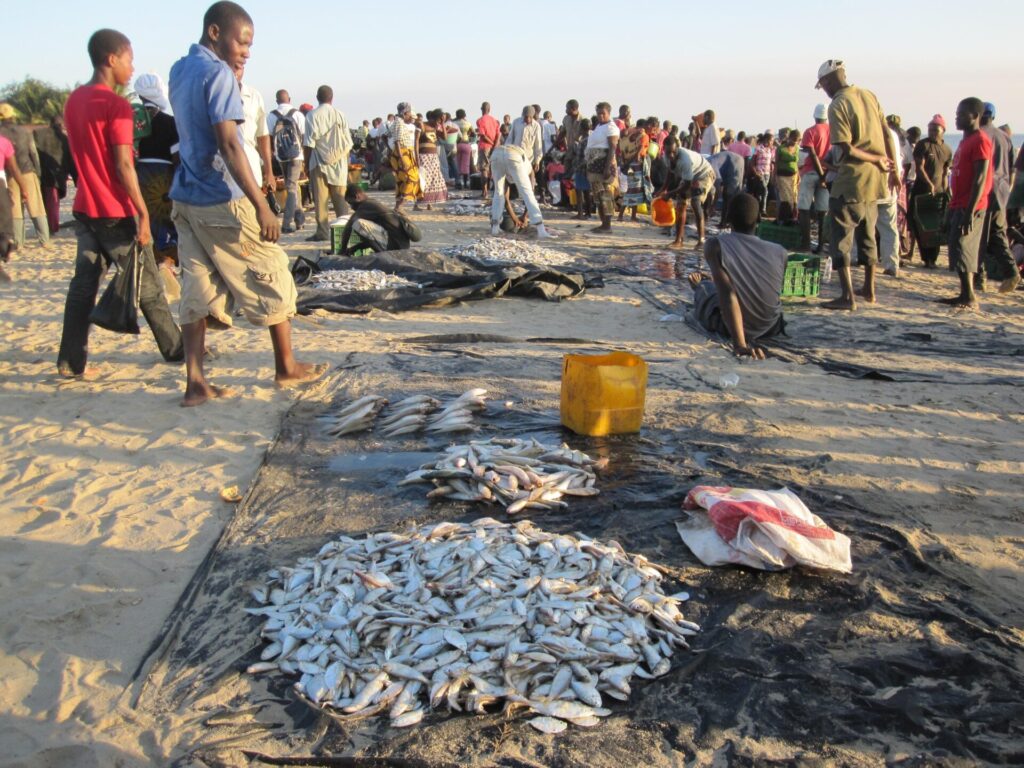
Blast fishing threatens the sustainability of Tanzania’s fisheries and tourism sector. These sectors are a vital source of food security, employment and income for coastal communities.
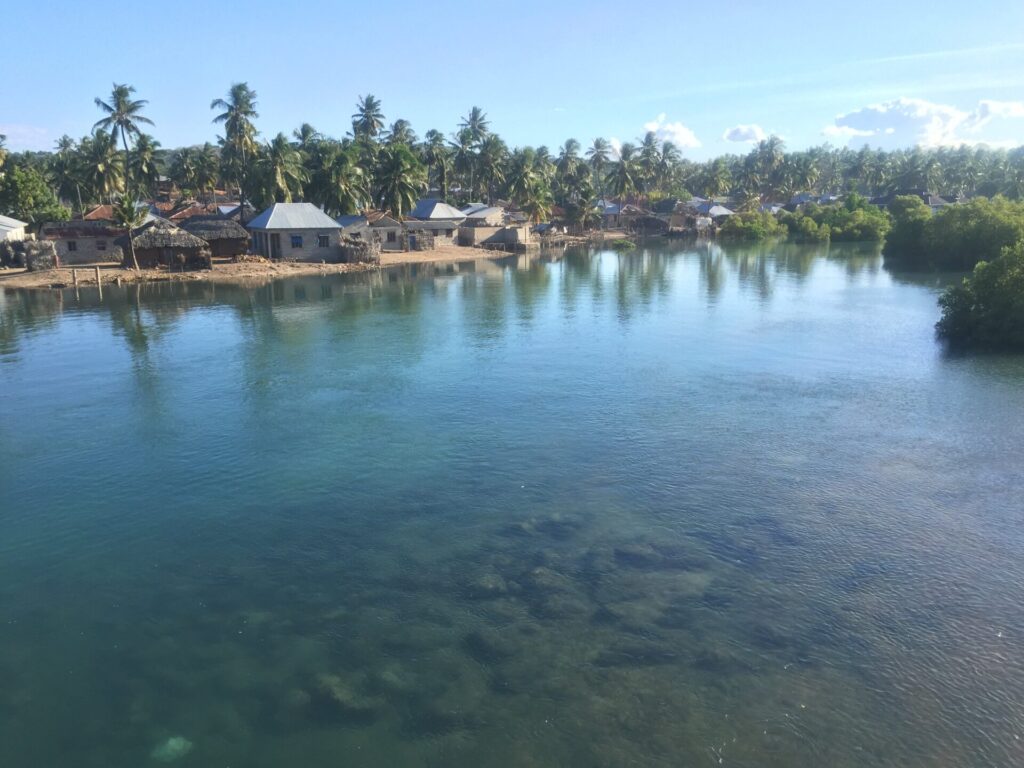
Blast fishing is common in many places along the Tanzanian coastline, like Mtwara (pictured above), a little town on the southern tip of the country. Mtwara borders the Mnazi Bay-Ruvuma Estuary Marine Park in southern Tanzania and the Quirimbas National Park in northern Mozambique — places of extreme natural capital and value.
In recent years, blast fishing has escalated in Tanzania. Currently fishers report that it is normal to hear 20 to 50 blasts a day in many locations along the coast. An increasing number of reports suggest that dynamite fishing occurs along the entire Tanzanian coastline. It also occurs in marine parks, marine reserves and other important buffer zones.
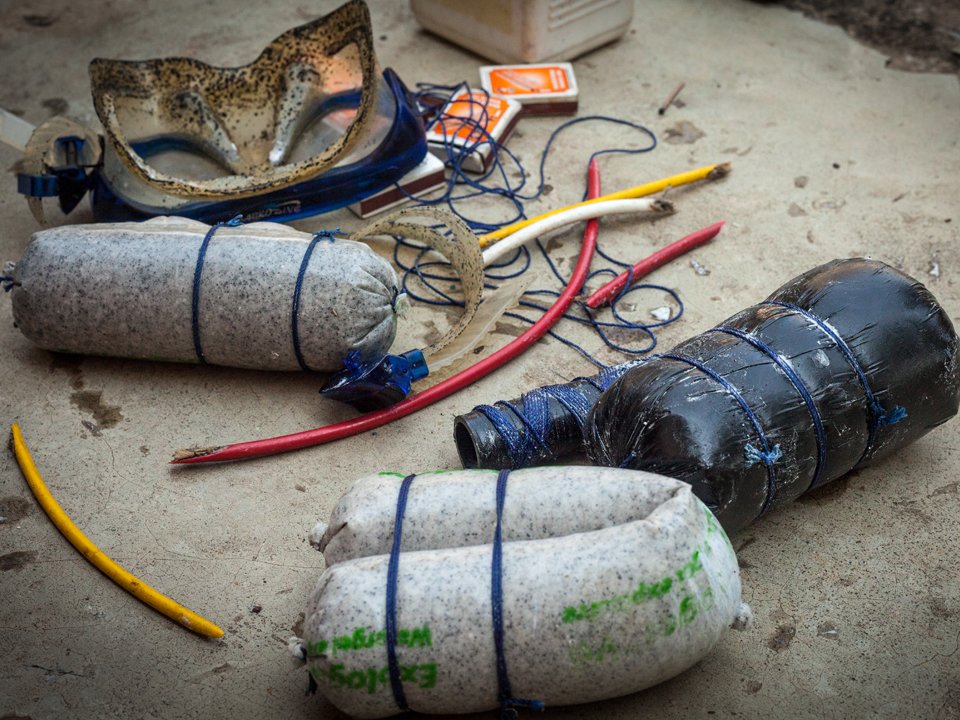
Explosives (pictured above) are usually lit with small fuses and thrown overboard. The underwater shock waves produced by the explosion stun the fish, rupturing their swim bladders – the organ that controls their buoyancy. After the blast fish float to the surface to be collected by the fishermen, while others sink to the seabed.
This practice affects not only the targeted fish but also all the surrounding fauna, flora and marine species within a 15-20 mile radius, such as juvenile fish, fish larvae and eggs and hard corals. Although the extent of the damage can vary, a single dynamite explosion often kills most of the invertebrates in the area and leads to a reduction in demersal plankton, which many reef fish feed on. This causes an instant decline in the diversity and quantity of fish species.
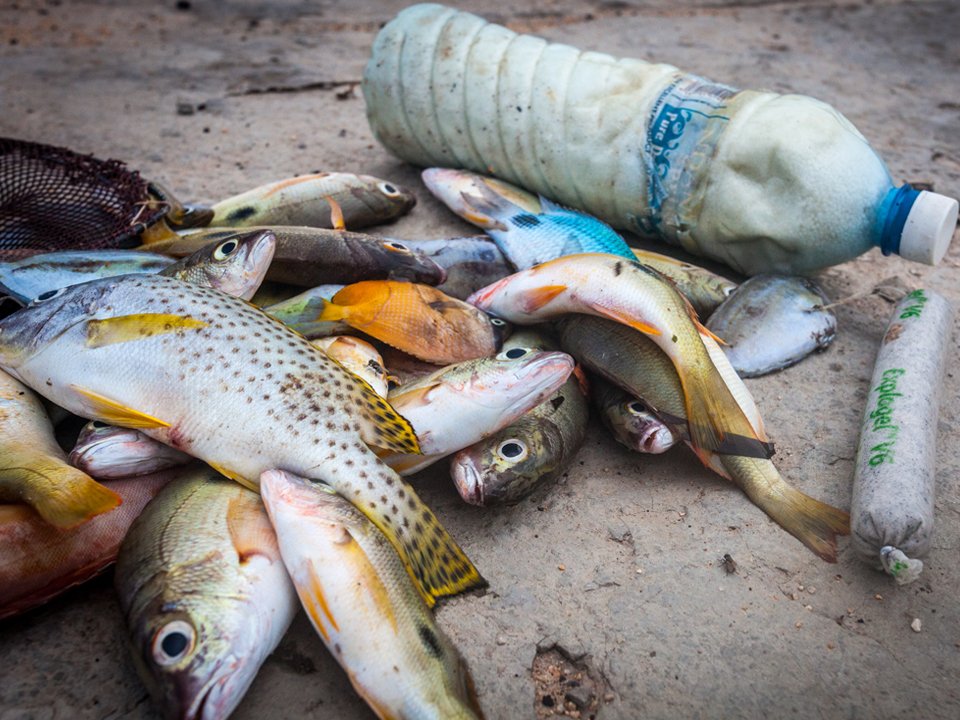
Regular blast fishing is undertaken by village residents, from shore, on foot, at low tide and in small boats (with and without engines). In addition, lucrative fish such as tuna are increasingly targeted using surface blasts in deep water (the fish are collected by scuba divers). Fishers engage in this practice because of unemployment, a lack of alternative income and the large ‘gain per effort expended’ in comparison to traditional line fishing.
Further investigations into illegal fishing practices in Tanzania show that these are not only opportunistic crimes but form part of a much wider network of transnational organised crimes. Explosives and other components such as explosive gel and detonator caps are easily and cheaply sourced from quarries and enterprises involved in mining, demolition and road construction. Less sophisticated bombs are also used, made from plastic bottles filled with artificial fertilizer and diesel.
Blasting occurs close to markets where there is a high demand for fish, or the blasted fish are transported to market by truck. Blasts can yield a catch of up to 150-400kg (with a profit of $400-$1,800 in market sales). A group of fishers can undertake numerous blasts a day, making this form of fishing a lucrative business.
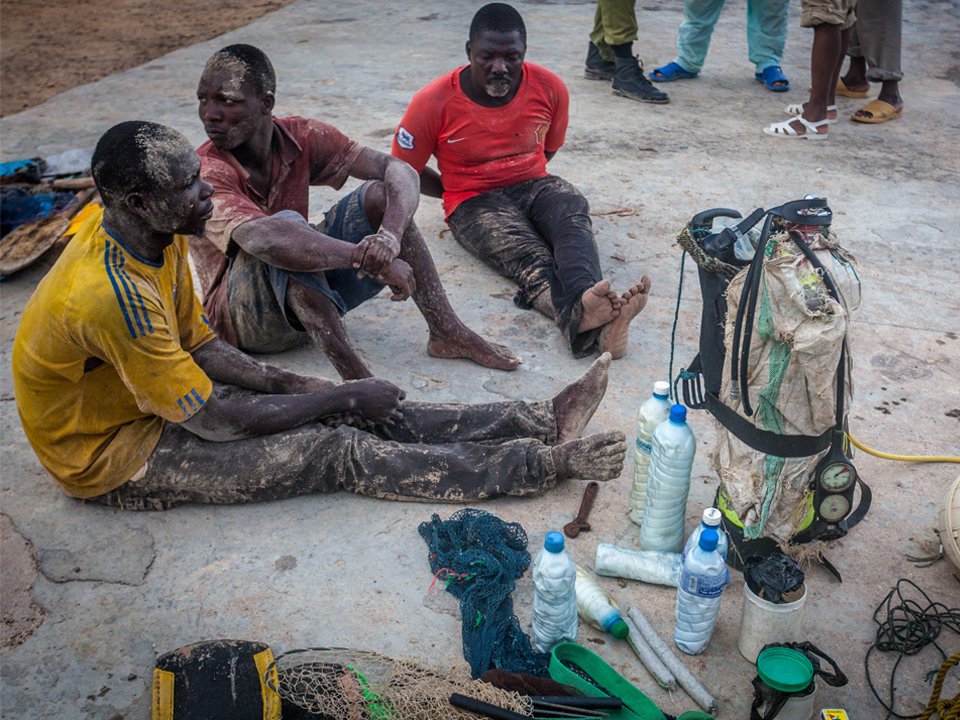
Blast fishing was officially banned in Tanzania under the revised Fisheries Act of Tanzania 2003. The penalties for dynamite fishing and the illegal possession of explosives are minimum sentences of five years and 12 months respectively. However, the government has failed to fully prosecute dynamiters, and the penalties imposed in the handful of convictions have all been far below the legal minimum requirement.
This impression of leniency has led to widespread cynicism and hesitation among villagers to report violators. Cases have been dismissed owing to the non-presentation of prosecution files or of actual evidence, and only minor fines have been issued.
To rectify this, offences related to blast fishing should be written into the Tanzanian penal code, which would result in much harsher sentences.
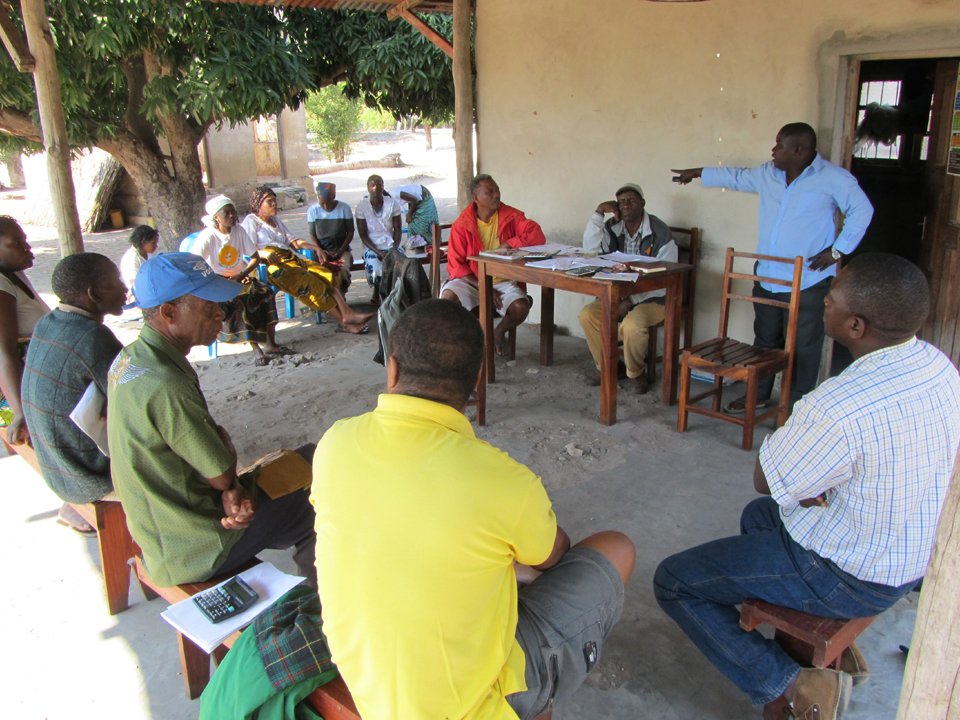
In the coastal town of Vilanculos in Mozambique, fisheries communities (pictured above) meet regularly to discuss issues related to marine resources.
In Tanzania, a co-management system was put in place along the coast several years ago, with district government and village community forums jointly determining the management criteria for local areas and enforcing by-laws related to illegal fishing. However, without external support, they do not have the resources to do their jobs.
Eliminating the use of dynamite for fishing requires a multi-stakeholder approach that includes villagers, local and national government, non-governmental organisations, the private sector and the region.
An effective, long-term solution to end blast fishing is needed, one that considers alternative employment and livelihood opportunities and incorporates scaling up projects to plant and restore coral reefs. Without this, blast fishing will continue to flourish in Tanzania’s coastal waters, to the detriment of its people, environment and economy.
(Main image: Romy Chevallier.)
Read the Policy Insight on which this essay is based here.
The opinions expressed in this article are those of the author(s) and do not necessarily reflect the views of SAIIA or CIGI.
